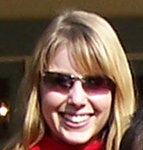Postdoctoral Fellows
 Tatiana Basika. In the Scott lab Tatiana worked with Rossina to identify active U6 gene promoters in screwworm. The promoters can be used for guide RNA expression. Tatiana is now a member of the joint INEA/Institute Pasteur Montevideo program on developing gene drives in screwworm in Uruguay.
Tatiana Basika. In the Scott lab Tatiana worked with Rossina to identify active U6 gene promoters in screwworm. The promoters can be used for guide RNA expression. Tatiana is now a member of the joint INEA/Institute Pasteur Montevideo program on developing gene drives in screwworm in Uruguay.
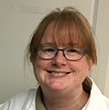 Kara Bolz. Kara worked on developing a conditional gene drive system in D. suzukii. She is currently senior scientist at Plastomics
Kara Bolz. Kara worked on developing a conditional gene drive system in D. suzukii. She is currently senior scientist at Plastomics
 Carolina Concha. Carolina developed the male-only strains of the New World screwworm with support from the NIFA BRAG program. Carolina was previously a postdoctoral fellow in the Scott lab at Massey University, where she isolated and characterized the Lucilia cuprina transformer gene. After a period working for COPEG in Panama, Carolina moved on to work with Owen McMillan at STRI in Panama.
Carolina Concha. Carolina developed the male-only strains of the New World screwworm with support from the NIFA BRAG program. Carolina was previously a postdoctoral fellow in the Scott lab at Massey University, where she isolated and characterized the Lucilia cuprina transformer gene. After a period working for COPEG in Panama, Carolina moved on to work with Owen McMillan at STRI in Panama.
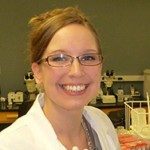 Rebecca Davis. Rebecca worked on engineering L. sericata strains for enhanced maggot therapy and on X chromosome dosage compensation in L. cuprina. She is now Associate Lab Project Services Manager at Q2 solutions.
Rebecca Davis. Rebecca worked on engineering L. sericata strains for enhanced maggot therapy and on X chromosome dosage compensation in L. cuprina. She is now Associate Lab Project Services Manager at Q2 solutions.
 Helen Fitzsimons. Helen completed her Master’s degree in the Scott lab. Several years later, after completing a PhD at The University of Auckland and postdoctoral work in the USA, Helen returned to the Scott lab. Helen worked on the role of epigenetic modifiers in long term memory in Drosophila. She has continued this research as a senior lecturer in Genetics at Massey University in New Zealand.
Helen Fitzsimons. Helen completed her Master’s degree in the Scott lab. Several years later, after completing a PhD at The University of Auckland and postdoctoral work in the USA, Helen returned to the Scott lab. Helen worked on the role of epigenetic modifiers in long term memory in Drosophila. She has continued this research as a senior lecturer in Genetics at Massey University in New Zealand.
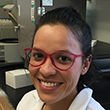 Melina Florez-Cuadros. Melina worked on developing site-specific recombination systems in L. cuprina and on gene promoters active in the germline in L. cuprina. She returned to Colombia to work on ecological projects and is currently a science policy interface leader at OWSD and a part-time lecturer at Universidad Peruana Cayetano Heredia, Peru.
Melina Florez-Cuadros. Melina worked on developing site-specific recombination systems in L. cuprina and on gene promoters active in the germline in L. cuprina. She returned to Colombia to work on ecological projects and is currently a science policy interface leader at OWSD and a part-time lecturer at Universidad Peruana Cayetano Heredia, Peru.
 Jörg Heinrich. The first postdoctoral fellow in the Scott lab, Jörg developed the first tetracycline-repressible female lethal system in Drosophila. After leaving the lab in 2000, Jörg has worked for RESprotect, a biotechnology company in Germany. He is currently CSO at RESprotect.
Jörg Heinrich. The first postdoctoral fellow in the Scott lab, Jörg developed the first tetracycline-repressible female lethal system in Drosophila. After leaving the lab in 2000, Jörg has worked for RESprotect, a biotechnology company in Germany. He is currently CSO at RESprotect.
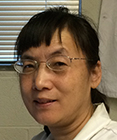 Fang Li. Fang worked on the single component male-only system in L. cuprina and has also developed male-only strains of D. suzukii. Fang was also the first to apply CRISPR/Cas9 gene editing technology to D. suzukii. Fang has returned to New Zealand to help run the family business.
Fang Li. Fang worked on the single component male-only system in L. cuprina and has also developed male-only strains of D. suzukii. Fang was also the first to apply CRISPR/Cas9 gene editing technology to D. suzukii. Fang has returned to New Zealand to help run the family business.
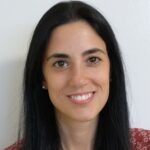 Rossina Novas. In the Scott lab Rossina worked with Tatiana to identify active U6 gene promoters in screwworm. The promoters can be used for guide RNA expression. Rossina is now a member of the joint INEA/Institute Pasteur Montevideo program on developing gene drives in screwworm in Uruguay.
Rossina Novas. In the Scott lab Rossina worked with Tatiana to identify active U6 gene promoters in screwworm. The promoters can be used for guide RNA expression. Rossina is now a member of the joint INEA/Institute Pasteur Montevideo program on developing gene drives in screwworm in Uruguay.
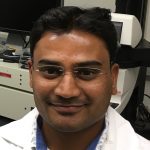 Anandrao Patil. Anand worked on developing conditional lethal strains of hoppers and aphids. He is now a postdoctoral fellow at the University of Washington.
Anandrao Patil. Anand worked on developing conditional lethal strains of hoppers and aphids. He is now a postdoctoral fellow at the University of Washington.
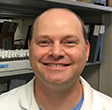 Bill Reid. Bill worked on characterizing transgenic strains of D. suzukii, including lines that express Cas9 in the germline. Bill is a Research Assistant Professor at University at Buffalo-State University of New York.
Bill Reid. Bill worked on characterizing transgenic strains of D. suzukii, including lines that express Cas9 in the germline. Bill is a Research Assistant Professor at University at Buffalo-State University of New York.
 Abhimanyu Sarkar. Abhi developed insulated piggyBac vectors for insect transgenesis and characterized Lucilia female-specific yolk protein genes. After leaving the Scott lab in 2006, Abhi was a scientist for several years at AgResearch in New Zealand. He is currently the Innovation Growth Manager at Growing Kent and Midway in the U.K.
Abhimanyu Sarkar. Abhi developed insulated piggyBac vectors for insect transgenesis and characterized Lucilia female-specific yolk protein genes. After leaving the Scott lab in 2006, Abhi was a scientist for several years at AgResearch in New Zealand. He is currently the Innovation Growth Manager at Growing Kent and Midway in the U.K.
 Anja Schiemann. Anja investigated the influence of the MOF histone acetyl transferase on gene expression in Drosophila. Anja also worked on MSL complex binding sites in Drosophila and made important contributions to several other projects. She is currently a research officer at Massey University, New Zealand.
Anja Schiemann. Anja investigated the influence of the MOF histone acetyl transferase on gene expression in Drosophila. Anja also worked on MSL complex binding sites in Drosophila and made important contributions to several other projects. She is currently a research officer at Massey University, New Zealand.
 Ying Yan. Ying developed transgenic embryonic and early larval sexing strains of L. cuprina. Ying has also worked with Carolina Concha on evaluating transgenic New World screwworm strains that carry the system he developed. Ying is a group leader and principal investigator at Justus-Liebig-University in Giessen, Germany.
Ying Yan. Ying developed transgenic embryonic and early larval sexing strains of L. cuprina. Ying has also worked with Carolina Concha on evaluating transgenic New World screwworm strains that carry the system he developed. Ying is a group leader and principal investigator at Justus-Liebig-University in Giessen, Germany.
Doctoral
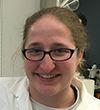 Megan Williamson. Megan graduated with a PhD in Genetics in 2021. She developed and evaluated conditional female lethal and female transformation strains. After graduating Megan joined Locus Biosciences in Raleigh. She s currently a scientist with Life Edit Therapeutics.
Megan Williamson. Megan graduated with a PhD in Genetics in 2021. She developed and evaluated conditional female lethal and female transformation strains. After graduating Megan joined Locus Biosciences in Raleigh. She s currently a scientist with Life Edit Therapeutics.
Sophia Webster. For her doctoral research, Sophia developed a novel self-limiting gene drive system in Drosophila and in the dengue fever vector Aedes aegypti. She is currently running her own personal training business https://fitbysciencecoaching.com/.
Katherine Knudsen. Katherine studied the influence of genetic background on the effectiveness of tetracycline-repressible female lethal systems. She graduated with a Ph.D. in Genetics in 2018 and took a position as senior scientist with Q2 Solutions. She is currently a scientist at Biofidelity.
Vikki Weake. Vikki completed her Ph.D. in Genetics in 2005 on X-linked genes that escape X chromosome dosage compensation in Drosophila. Vikki continued to study epigenetic mechanisms as a postdoc with Jerry Workman. She is currently an Associate Professor in Biochemistry at Purdue University.
 Corey Laverty. Corey completed his Ph.D. in Genetics in 2010 on the role of the gene promoter in X chromosome dosage compensation in Drosophila. After working as EU Manager at Ludwig-Maximilians-Universitaet Muenchen, Munich, Germany and as a research development coordinator at Monash University, Corey returned to New Zealand where he is a Senior R&D consultant at BlueRock, NZ.
Corey Laverty. Corey completed his Ph.D. in Genetics in 2010 on the role of the gene promoter in X chromosome dosage compensation in Drosophila. After working as EU Manager at Ludwig-Maximilians-Universitaet Muenchen, Munich, Germany and as a research development coordinator at Monash University, Corey returned to New Zealand where he is a Senior R&D consultant at BlueRock, NZ.
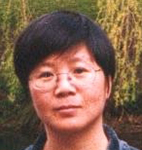 Xuelei Li. The first doctoral student in the Scott lab, Xuelei completed her Ph.D. in Genetics in 2002 on development of a germ-line transformation system for Lucilia cuprina. After postdoctoral work with Ming-Jer Tsai at Baylor College of Medicine, Xuelei moved to Melbourne and worked for several years at Monash University.
Xuelei Li. The first doctoral student in the Scott lab, Xuelei completed her Ph.D. in Genetics in 2002 on development of a germ-line transformation system for Lucilia cuprina. After postdoctoral work with Ming-Jer Tsai at Baylor College of Medicine, Xuelei moved to Melbourne and worked for several years at Monash University.
Master’s
 Becky Edman. Becky completed her MS in 2013 on Lucilia cell death and early embryo genes. She is currently employed as a cytogenetics technologist at LabCorp in Raleigh.
Becky Edman. Becky completed her MS in 2013 on Lucilia cell death and early embryo genes. She is currently employed as a cytogenetics technologist at LabCorp in Raleigh.
 Charles Ellen. Charles completed his MSc in Genetics on the role of histone modifying enzymes in long term memory in Drosophila in 2008. After a stint teaching English in South Korea, Charles began his doctoral studies on dopamine receptors in honeybee at the University of Otago.
Charles Ellen. Charles completed his MSc in Genetics on the role of histone modifying enzymes in long term memory in Drosophila in 2008. After a stint teaching English in South Korea, Charles began his doctoral studies on dopamine receptors in honeybee at the University of Otago.
 Simon Hills. Simon completed his MSc in 2003 and then stayed at Massey for his doctoral studies on molecular evolution. Simon is current a senior lecturer in Evolutionary Biology in the Institute of Agriculture & Environment, Massey University, New Zealand.
Simon Hills. Simon completed his MSc in 2003 and then stayed at Massey for his doctoral studies on molecular evolution. Simon is current a senior lecturer in Evolutionary Biology in the Institute of Agriculture & Environment, Massey University, New Zealand.
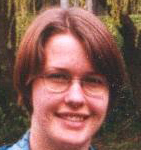 Rebecca Kirk (Henry). Rebecca completed a MSc on dosage compensation in Drosophila in 2000. After completing a PhD in Neuroscience at University of Auckland, Rebecca worked for organizations based in Auckland. She is currently a scientist with The New Zealand Institute for Plant & Food Research Ltd.
Rebecca Kirk (Henry). Rebecca completed a MSc on dosage compensation in Drosophila in 2000. After completing a PhD in Neuroscience at University of Auckland, Rebecca worked for organizations based in Auckland. She is currently a scientist with The New Zealand Institute for Plant & Food Research Ltd.



